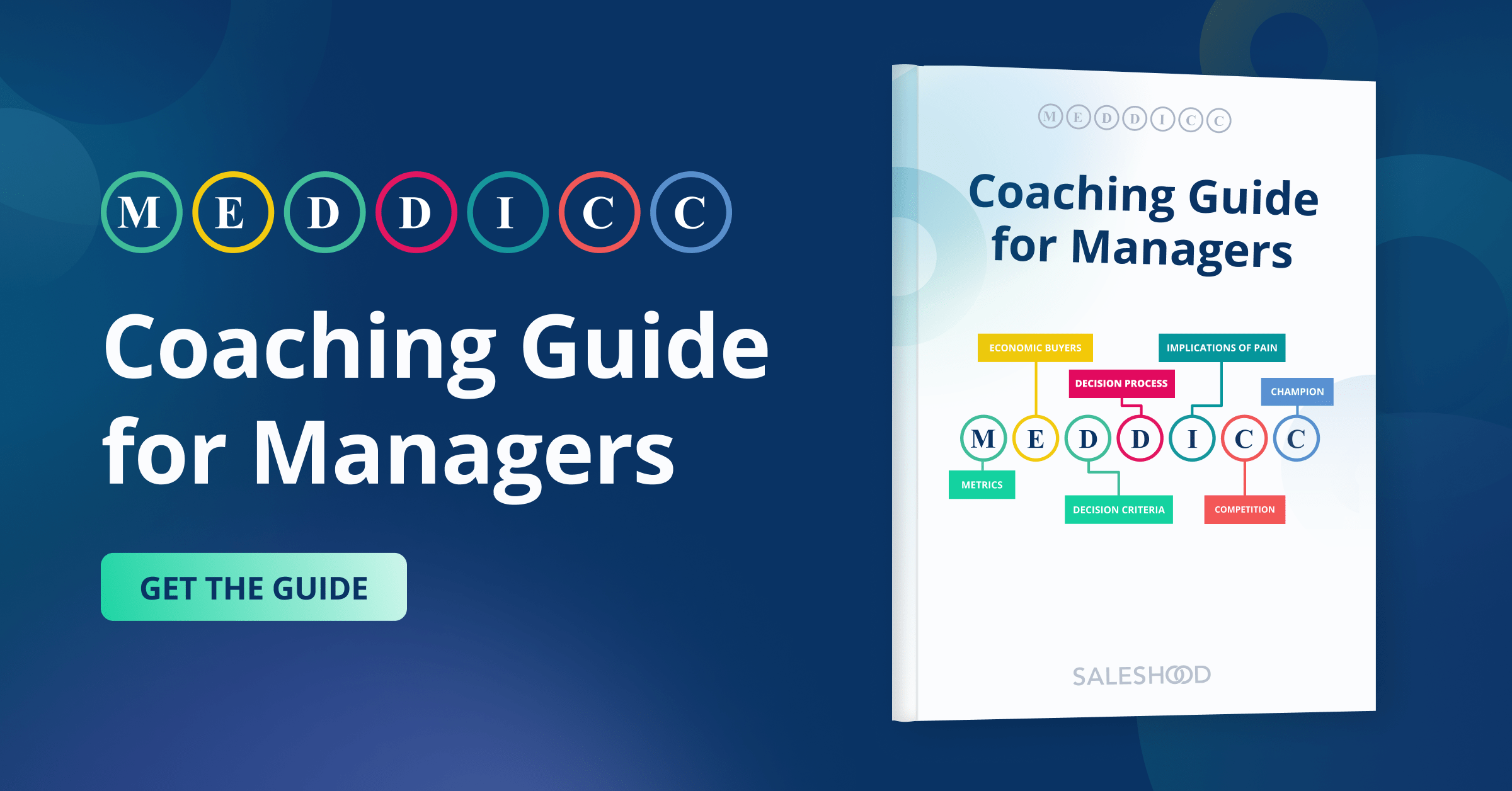According to Hubspot, 52% of sales leaders say conversations is one of the most important productivity metrics to track, which means that the value of every sales calling process depends on your level of planning and preparation. Planning the sales call is essential for the proper flow of your conversation with the clients and keeping your professionalism.
If you want to raise the possibility of having a second meeting, better prepare. Fortunately, at the end of the article, we will offer a worksheet that can help you with your sales call planning and adequately execute your calls to boost your success rate.
Importance Of Sales Call Planning
When you plan your call, you can prepare a value outline for the client if you need it. According to 91 Essential Sales Statistics: 2020 Data & Strategies Analysis, there is a 74% increase in your successful sales if you ask at least 11 questions during your initial call. Furthermore, the following are several reasons why sales call planning is essential:
- It gives the sales reps or the seller a recognition or understanding of the client’s buying motives.
- You can determine possible connections between you as a sales professional and your client that you can use to create a good customer relationship.
- A sales call plan ensures that you understand your customers’ expectations and sets the foundation that you need to accomplish.
- It lets you follow your sales process to increase the chances of getting the opportunity.
- It is one of the proofs of your professionalism that clients can observe.
7 Steps Of The Sales Process
A sales process refers to a repeatable order of stages. Each stage includes a set of actions that your sales professionals should value and perform to turn a prospect into a paying customer. Here are the seven steps that comprise the sales process:
1. Prospecting
Prospecting is the first step in the sales process, wherein you find your prospect or potential customer. You must identify if they need your product or service and if it fits their budget. You can also take your time to conduct thorough research about your prospect to secure and close more sales or create a successful sales call.
Your company can perform different ways of prospecting in this sales cycle. Some of these methods are through social media, marketing methods, networking at trade shows, referrals, and cold calling.
2. Initial Contact And Qualifying
Your sales reps need initial contact with your leads regardless of how you obtained them. Initial contact can be in the form of email, phone calls, or social media usage. This first interaction aims to collect information and make sure whether the leads match your offered product or service.
The qualifying questions are usually concerning the need, budget, authority, and timeline. Once your lead becomes a qualified prospect, your sales rep can proceed to the next step, the needs assessment stage.
3. Needs Assessment
During this step, the sales rep must prepare to ask questions to the prospect. This method can help them remember the essential details while guiding the ongoing conversation. One of the sales tips that we can recommend is that the sales rep should attentively listen to the individual they are talking to at this portion of the sales process. Some questions that you can utilize in this step to make sure you have a guideline are:
- Describe your present situation.
- What aspects did you like or dislike from your former provider?
- What are the business issues that you are hoping we will be able to give a solution?
4. Presentation or Sales Pitch
The next step is the presentation or the sales pitch, wherein it is the time to convey the value of your offered solution, product, or service regarding your prospect’s needs and desired goals. Your needs assessment can affect this stage; that is why your sales rep should be clear and concise during the previous phase.
It is beneficial that your sales rep value every detail gathered from the prospect during the previous step, especially the individual’s information regarding the things they pay more interest. By doing this, you can actively demonstrate how your company’s product or service meets the potential customer’s needs and wants.
5. Handling Objections
After you have provided the necessary information, support, and the best possible solution, the answer still lies to your prospect. This part is also where many unsuccessful salespeople give up in the process—44% of salespeople leaving pursuit after a rejection, 22% after two rejections, 14% after three, and 12% after four, although 80% of sales need a minimum of five follow-ups to convert.
Your prospect’s typical objections are due to the price, offer’s content, contract terms, risk, and many more. Successfully handling rejections and relieving concerns separates a good salesperson from bad and great from good.
6. Closing
In the closing phase, the prospects either make a purchase or stop the sales process. Many individuals see this step as the most significant one, but this stage only becomes successful if there is the proper execution of the previous steps in the sales cycle.
When your prospect agrees to your contract terms and price, this means you gain a sale or it is a successful sales call. Depending on your type of business, you may want to check one of these three closing methods.
- Alternative choice close refers to the act of assuming the sale and offering the prospect a selection, where both available options close the deal.
- Extra inducement close refers to the offerings, such as a free month of service or a discount to let your prospect agree and close the sale.
- Standing room only close refers to the creation of urgency by expressing that time is of the essence.
7. Follow-up
Your job does not end at closing the sale or after the successful sales call because you need to conduct a follow-up to your customers. The follow-up phase keeps you in communication with clients that you have completed the deal. This act may result in possible repeat business or referral. One sales advice we can say is that maintaining relationships with your customers gives many benefits to your company.
Four Types Of Sales Calls
Making sales calls is one of the duties listed in every sales position job description. You must know the types of call sales rep use to be familiar with it and gain knowledge about it. Here are the four different types of a sales call:
Cold Call
The most popular type of sales call widely used in different industries is the cold call. Cold calls happen when the client and the salesperson don’t know each other yet. The first step that a sales rep takes to approach the customer is known as cold.
Most industries utilize this type of sales call to gain new clients and increase their sales. Making a cold call means you have no idea if your customer needs or wants the products or services you offer to them.
Warm Calls
When your client shows a bit of interest in your product or service, you make a call, known as warm calls. You may have come to see the person’s little enthusiasm about your offerings from another customer, salesperson, web inquiry, or through interaction.
A warm call is distinct from a cold call because you are more confident to communicate in this type of sales call. There is more success rate when making these sales calls rather than cold calls.
Traditional Sales call
The sales call between an existing client and you as a salesperson is known as traditional sales calls. This type of sales calls is easy for you since you are already familiar with your customer. The customer knows you and may also recognize your purpose in calling them.
Usually, you do this call when you want to sell a new product or service to your current customer. It can also refer to a call regarding the prospect’s concerns so that your company can offer solutions to the problem.
Sales Appointment Call
When you have convinced your customer to purchase your product or service, a sales appointment call happens. Here, both of you should meet and discuss the business, finalizing the sale. This type of sales call is the most important call for the company, so you must prepare yourself and make sure you are confident enough before making a sales appointment call.
How To Structure A Sales Call
Making sales calls is sometimes complicated, so having a well-planned sales call structure and script and seeking some sales advice can increase your sales success rate. You can note these following things to consider to structure sales calls:
-
Begin With An Impactful Introduction
Make sure that you capture your prospect’s attention and engagement within the first few seconds. Keep your introduction simple and begin with the necessary details about you and your company. At the same time, you can confirm the things you learned when you did your research before the sales phone call.
-
Qualify
When you ask questions, you can create a good rapport, get your client’s interest, and further qualify them. You can ask about particular pain points or make follow-up calls to know if something has changed.
-
Succeed In Dealing With Objections
You can anticipate some questions or concerns from your client, so you need to prepare your responses. You must be confident in dealing with this aspect. Also, it can help if you patiently listen to the objections and respond calmly because no one wants to close a deal when you can’t handle them well.
-
Schedule A Follow-Up
It is essential that after the prospect responds positively and agrees to your offer, you must see that you schedule a follow-up.
Pre-Call Planning
Pre-call planning refers to the research process concerning the preparation for making a sales call. It is also the foundation of your company’s sales strategy to help you create a plan to perform your sales goals. This type of planning happens before the call and acts as a blueprint of how your sales call will go.
Another thing about this planning means that as a sales professional, you are doing your homework on the business, evaluating needs, and preparing to provide solutions. Pre-call planning aids you in identifying the missing information so that you can ask the appropriate questions. All in all, a proper pre-call helps you chart a productive path.
Sales Call Planning Checklist
As a sales professional or sales executive, your job is to ensure a smooth and seamless sales performance. To help you with that, we recommend this checklist to be ready before making sales calls. Following this checklist lets you enhance the quality of your meetings or discussions and increase your successful sales rate.
-
Determine roles for every individual attending the meeting.
Including your executives. Doing this method allows everyone to understand their role in the forum correctly.
-
There should be a dissemination of your meeting’s agenda with the meeting attendees and customer champion.
Sending the meeting’s agenda and goals before it happens lets them know what they can expect.
-
Check your meeting’s agenda before starting the session with your executives.
This step in the sales call checklist is significant because you don’t want any surprises nor failure when the meeting already starts.
-
There must be clarity on your expected result of the meeting.
Each present in the session should know and set exact expectations that need accomplishment during the meeting.
-
Arrange a pre-meeting call to prepare.
It is helpful if you brief your executives a few minutes before the actual meeting takes place.
-
Let your executives know the deal strategy.
Update them on the account brief, and other deal details in the form of a short audio or video story for easy execution.
-
Share brief profiles for every person present in the meeting, including their LinkedIn profiles.
You may email the list in advance or place it in a calendar invite for your executives to acknowledge.
-
Set up session debriefs.
Listen to every individual’s impression of the forum and list any observations from them.
How To Open Sales Call
Opening your sales call is a simple and easy process. Any individual can open a sales call and do a little selling without much pressure. At this period, there is no pressure yet because you have no investment in the customer relationship.
Additionally, having no investment means no quotes given yet, no emailed brochures, and your business’s risk during an open sales call is none. Learn the following steps of opening a sales call:
Step 1: Greet The Person
Sales are about building relationships, and the foundation of this bond are social pleasantries and niceties. Keep your greeting professional and respectful, unless the customer has a specific way of working that out.
Step 2: Introduce Yourself And Your Business Properly
For a little sales tip, when you make your introduction, you must sound interesting. You have to ensure that you don’t do anything that can make your client resort to rejections.
Step 3: Thank And Appreciate Them For Giving You The Time
This step assumes that the client needs a little more time to decide. Instead of attempting to ask for space on your client’s day, you can acknowledge that they are busy. Thank them first for the time they are giving you despite their busy schedule.
Post Call
Your sales call is not an instant and one-time activity but a continuing process to keep clients. It is essential to retain the positive momentum even after you finish the sales call. In this scenario, your sales follow-up is vital after the deal happens. You must clearly understand how an effective follow-up should take place.
Sales Follow Up
A method that can boost your sales by selling more to current customers and getting referrals to new clients is a sound sales follow-up strategy. In this period, your company closes the deal, and the customer fulfilled a want, need, or found the solution to their problem.
Moreover, you can make a sales follow up call or a post-sales call follow up to maintain the positive momentum between you and your client. You may tell that the sales follow up process is critical in creating long-term relationships with your clients. You can check the latest sales follow-up statistics to determine how it can affect your business.
Schedule Sales Follow Up
Aside from showing that you care, your followups can also determine the problems to fix them. Scheduling sales follow up with your customers is essential. Without it, you, as a sales professional, may not learn the typical reasons why customers don’t come back for your product or service.
Post Call Follow Up Formats
To make your follow-ups much convenient, easy, and fast, you can refer to these following options:
- Text/SMS
- Letter
- Thank you card
Sales Follow-Up Questions
Sales follow-up questions are what sales reps use to ask their prospect or customers after receiving the initial query. The use of follow-up questions provides a better understanding of the information given by the client. Here are some examples:
- Can you tell me more about that?
- Can you be more specific about that?
- How did that impact you?
- How did you feel about that?
Pre-call and Post-call Analysis
If you want to develop and enhance your selling skills, you have to make a clear sales call plan and objective before each call. After the sales call, conduct a meticulous post-call analysis to enhance your expectations regarding the quality of conversations you are making with your clients.
Pre-call Analysis
Good pre-calling begins with your perception of what you want to accomplish with the call. This thought means that you have to set clear call objectives that can guide you. Without an existing purpose, chances are you may risk your sales call into an unfocused one. You may consider the following questions to analyze things before contacting a new customer:
- What is my call objective?
- How will I open the call?
- What information and details should I gather?
Post-sales Call Review
Like any other professionals in their respective industries, you must do a post-call analysis after every sale call after your performance. Your primary area of inquiry must be on the results, whether you achieve your sales call objective or not. You may also want to assess your sales script if it is useful, needs some changes, and note the possible reasons why it is not sufficient to increase your sales opportunities.
Sales Call Checklist
To prepare yourself more for making sales calls, we provide you with a list of downloadable assets, templates, and worksheets. These things can help you improve your sales call conversations’ quality and make you a better sales call planner.
Conclusion
As Benjamin Franklin once stated, “If you fail to plan, you are planning to fail.” This idea tells you that planning can create a difference, so you better consider taking your sales call plans with utmost efforts. With an organized call planning mindset and resources, sellers will execute successful sales calls and build strong rapport with customers.



